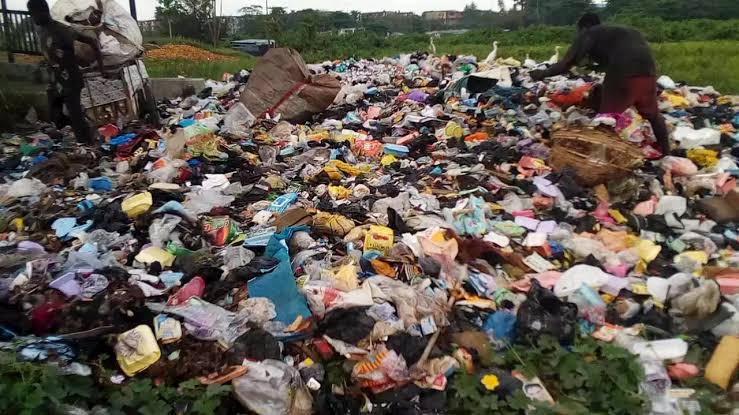The Federal Capital Territory Administration (FCTA) has decried the indiscriminate manner in which developers dump renovation materials and wastes on Right of Way in the territory.
SEE ALSO: Huawei Calls U.S. Move To Curb Chips Supply ‘Arbitrary’, Expects Business Impact
The Director, Department of Monitoring And Inspection, FCTA, Mr Olawale Labiyi said this in a statement by Mrs Josie Mudasiru, Head, Public Relations Unit of the department, on Wednesday in Abuja.
Labiyi said that the indiscriminate disposal of renovation wastes was unacceptable because it would have an adverse effect on the city’s infrastructure.
The director advised developers to contain their renovation materials and wastes within the boundaries of their plots.
He explained that there was a clause in the conveyance letter of approval, either for renovation, or a new construction that mandates developers to limit their working materials and wastes within their plots.
Labiyi said it has become worrisome as some developers are cutting deep underground, which can lead to cross connection of storm and in some cases, it can leak into water supply lines, which can lead to contamination of water and thereby could cause water borne diseases.
He added that unwholesome practices were also over stretching the capacity of the treatment plant.
Labiyi also said that blocking walk ways with renovation wastes can block infrastructure such as liquid waste, solid waste, and storm water manhole.
He added that people should appreciate the huge resources government had spent to provide these infrastructures.
He, therefore, urged them to desist from acts that would lead not only to its decay, but could also affect the health of residents.
The director noted that in view of the COVID-19 pandemic ravaging the world, this was the time for developers and residents to maintain a high level of hygiene.
This, according to him, people should ensure they dispose of their wastes in the bins provided by Abuja Environmental Protection Board to avoid prosecution by mobile courts.



Leave a Reply